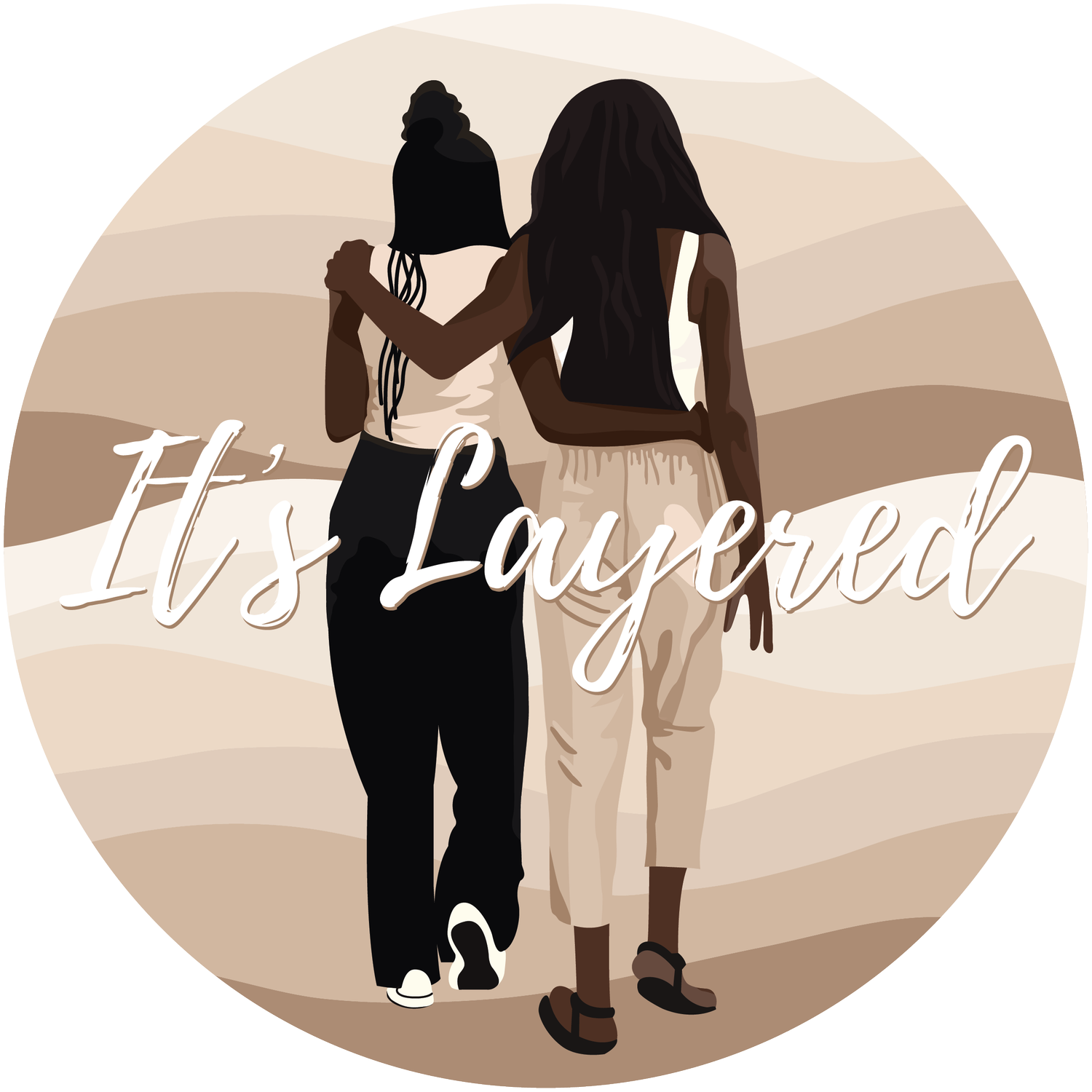Why A Podcast? Why ‘It’s Layered’?
Amanda and I have been friends since high school. We met in 2001 as bright-eyed and bushy-tailed teenagers dropped in the middle of the Mashonaland East bushes to figure out life as boarders at Peterhouse Girls’ School in Zimbabwe. OK, I may be exaggerating but, basically we were facing the big-bad world of boarding school and the complexities of high school on our own.
Over the years, our friendship developed into a strong bond. As life would have it for many of us, we went our different ways to university - Amanda to Australia and I to South Africa. Thankfully, Facebook became a thing and our friendship stayed in tact through social media and the internet. Our conversations and catch-ups would often last for hours as we unpacked all we were experiencing, thinking and navigating through.
When COVID hit in 2020, our DMC’s continued and we found ourselves constantly saying “It’s so layered” because nothing is every really just black and white. The conversations evolved into “we should start a podcast” and with a crash course in podcasting thanks to Dr. Google, we jumped in head first.
Why Podcasting?
Being two Zimbabwean girls in the diaspora, we were acutely aware of the black narrative being heavily westernised with Africans viewed through Eurocentric lenses. Blackness when it came to the black narrative were mostly associated with the Northern America and UK experiences. The black African narrative was very limited when it was spoken of. We couldn’t see our people’s stories - in their complexities - being discussed. We realised we had something to say, especially pertaining to taboo topics like ‘mental health’, ‘classism’, ‘colourism’, ‘black tax’ and the effects of ‘colonialism’.
We realise it is important to tell our stories in all their nuances and speak to others from our country to share their stories. This podcast is an outlet and a community for those of us who have experienced a myriad of things and felt like “surely, it can’t only be me!” A catalogue of our stories that we hope - one day - our children and our children’s children can refer to as they seek to understand what life was like for us.
If we don’t tell our stories in their truth, who will?
———————
by Rumbidzayi Zezula Dube
